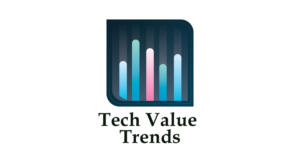Electroplating is a critical process in many manufacturing industries, offering a range of benefits such as improved corrosion resistance, enhanced appearance, and increased durability of metal parts. As the demand for high-quality electroplating services grows, so does the need for efficient and precise control systems. This is where Programmable Logic Controllers (PLCs) come into play. In this article, we will explore the advantages of using PLCs in electroplating and provide some practical implementation tips.
Understanding PLCs in Electroplating
PLCs are industrial computers designed to perform control functions, typically in manufacturing processes. In the context of electroplating, PLCs can automate various stages of the process, including pre-treatment, plating, and post-treatment. This automation ensures consistency, reduces errors, and enhances overall efficiency.
Enhanced Process Control
One of the primary advantages of using PLCs in electroplating is the enhanced control over the entire process. PLCs can precisely regulate temperature, current, and plating time, ensuring uniformity and high quality in the electroplated products. This level of control is difficult to achieve with manual operations or less sophisticated control systems.
Increased Efficiency and Productivity
Automation with PLCs significantly boosts efficiency and productivity in electroplating. By automating repetitive tasks and monitoring the process in real-time, PLCs reduce the likelihood of human error, minimize downtime, and streamline production. This leads to higher output rates and lower operational costs.
Improved Safety
Safety is a paramount concern in any industrial setting, and electroplating is no exception. PLCs can enhance safety by monitoring critical parameters and triggering alarms or shutdowns if conditions deviate from the set parameters. This proactive approach helps prevent accidents and ensures a safer working environment for operators.
Data Collection and Analysis
PLCs are capable of collecting vast amounts of data related to the electroplating process. This data can be analyzed to identify trends, detect anomalies, and optimize the process further. By leveraging this data, businesses can make informed decisions, improve process efficiency, and maintain consistent product quality.
Flexibility and Scalability
PLCs offer a high degree of flexibility and scalability, making them ideal for electroplating operations of various sizes. Whether you are running a small-scale Electroplating Advisory Business or a large-scale industrial operation, PLCs can be tailored to meet your specific needs. Additionally, as your business grows, the PLC system can be easily expanded or upgraded to accommodate increased production demands.
Assess Your Needs
Before implementing PLCs, conduct a thorough assessment of your electroplating process. Identify the key parameters that need to be controlled, such as temperature, current, and plating time. Understanding your specific requirements will help you select the right PLC system and configure it appropriately.
Choose the Right PLC System
Selecting the right PLC system is crucial for successful implementation. Consider factors such as the number of inputs and outputs, processing speed, memory capacity, and communication capabilities. Ensure that the chosen PLC system can handle the complexity of your electroplating process and provide the necessary control and monitoring functions.
Design a Robust Control Strategy
A well-designed control strategy is essential for effective automation. Work with experienced Electroplating Advisory Services to develop a control strategy that outlines the sequence of operations, control logic, and safety protocols. This strategy should be documented and tested thoroughly before implementation.
Integrate with Existing Systems
For seamless operation, the PLC system should be integrated with your existing electroplating equipment and software. Ensure compatibility and establish communication links between the PLC and other components such as sensors, actuators, and Human-Machine Interface (HMI) systems. Proper integration will enable real-time monitoring and control of the electroplating process.
Train Your Staff
Proper training is vital for the successful implementation and operation of PLC systems. Provide comprehensive training to your staff on the basics of PLC programming, troubleshooting, and maintenance. Skilled operators will be able to manage the system effectively, ensuring smooth and efficient electroplating operations.
Regular Maintenance and Updates
PLCs, like any other industrial equipment, require regular maintenance and updates to function optimally. Implement a maintenance schedule that includes periodic inspections, firmware updates, and calibration of sensors and actuators. Regular maintenance will prolong the lifespan of your PLC system and ensure consistent performance.
Leverage Professional Support
Implementing PLCs in electroplating can be complex, and seeking professional support can be highly beneficial. Collaborate with Electroplating Advisory Services that specialize in PLC automation to ensure a smooth implementation process. These experts can provide valuable insights, troubleshoot issues, and optimize your PLC system for maximum efficiency.
Conclusion
Automation with PLCs offers numerous advantages for electroplating operations, including enhanced process control, increased efficiency, improved safety, and valuable data collection. By following the implementation tips outlined in this article, businesses can successfully integrate PLC systems into their electroplating processes and achieve significant improvements in productivity and product quality. For more detailed guidance and support, consider consulting with Electroplating Advisory Services such as those found at theadvint.com.
